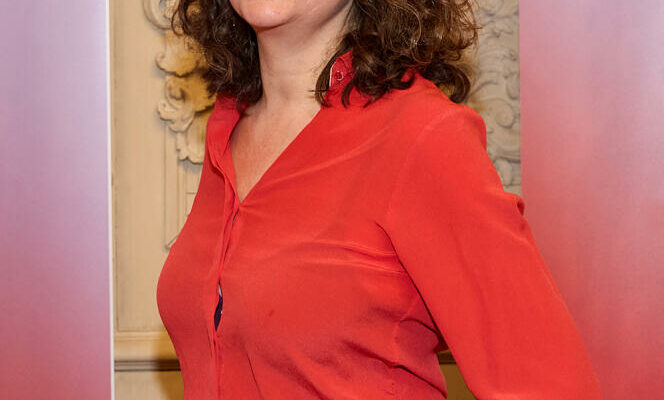She arranges to meet in the cafeteria of the Maison de la radio. For a time, Julie Gavras, daughter of a filmmaker and a producer, sister of a filmmaker and a producer, herself a director, abandoned image to concentrate on audio. His podcast, “La Maison du loup”, will be broadcast from January 24 on Arte Radio. We hear, for thirty-five minutes, professionals (psychiatrists, psychologists, sexologists, social workers, criminologists) who take care of perpetrators of sexual offenses forced by the courts to undergo psychological follow-up.
Rapists, child molesters, incestuous fathers… humans in the grip of disorders that have destroyed lives around them. There is this young intellectually disabled person who misses most of his sessions; another patient described by his court assistant as “manipulative, deniable, perverted” and who opens up to the therapeutic relationship during confinement, thanks to telephone interviews which free him from the gaze focused on him; this father of a 10-year-old girl, condemned for “acts” on another little girl of the same age, whom the psychotherapist hands over “faced with his paternal role” by questioning him about what he would do to a man who sexually assaulted his child…
That day, at the Maison de la radio, Julie Gavras was mixing an episode of the France Culture show “L’Expérience”. “Thirty-five degrees in Athens – my father, my son and the civil war” will evoke, on February 17, the conflict which opposed, in the aftermath of the Second World War, in Greece, the regular, pro-royalist army, to the communist resistance. who liberated the country. A little-known era in history revisited through the prism of the intimate.
“It’s a way of talking about my father [le cinéaste Costa-Gavras] without encroaching on his domain”, she says. Already in 2020, she had retraced, for the same program, an episode in the life of her mother, Michèle Ray-Gavras, who left in 1965 with three friends to cross the South American continent in a Renault 4L. “I had always found this adventure wonderful and I didn’t know if there were images: the podcast offers a speed of production unlike that of a documentary for TV or cinema”, she specifies. A more manageable means of expression, perhaps also allowing him to explore more personal stories.
“Those little things we never say”
Through the different media she uses, a common thread guides Julie Gavras’ work, which she summarizes as an interest in ” these little things that we never say, the concrete mechanisms behind the events.” His first fiction film, Fidel’s fault! (2006), it was this: how to grow up in a family of political activists? The documentary The Good Conditions, broadcast on Arte in 2018, this again: ” what does it do “ to be born in a very privileged environment, which bears its children but also oppresses them with the weight of its ambitions?
You have 50% of this article left to read. The rest is reserved for subscribers.
